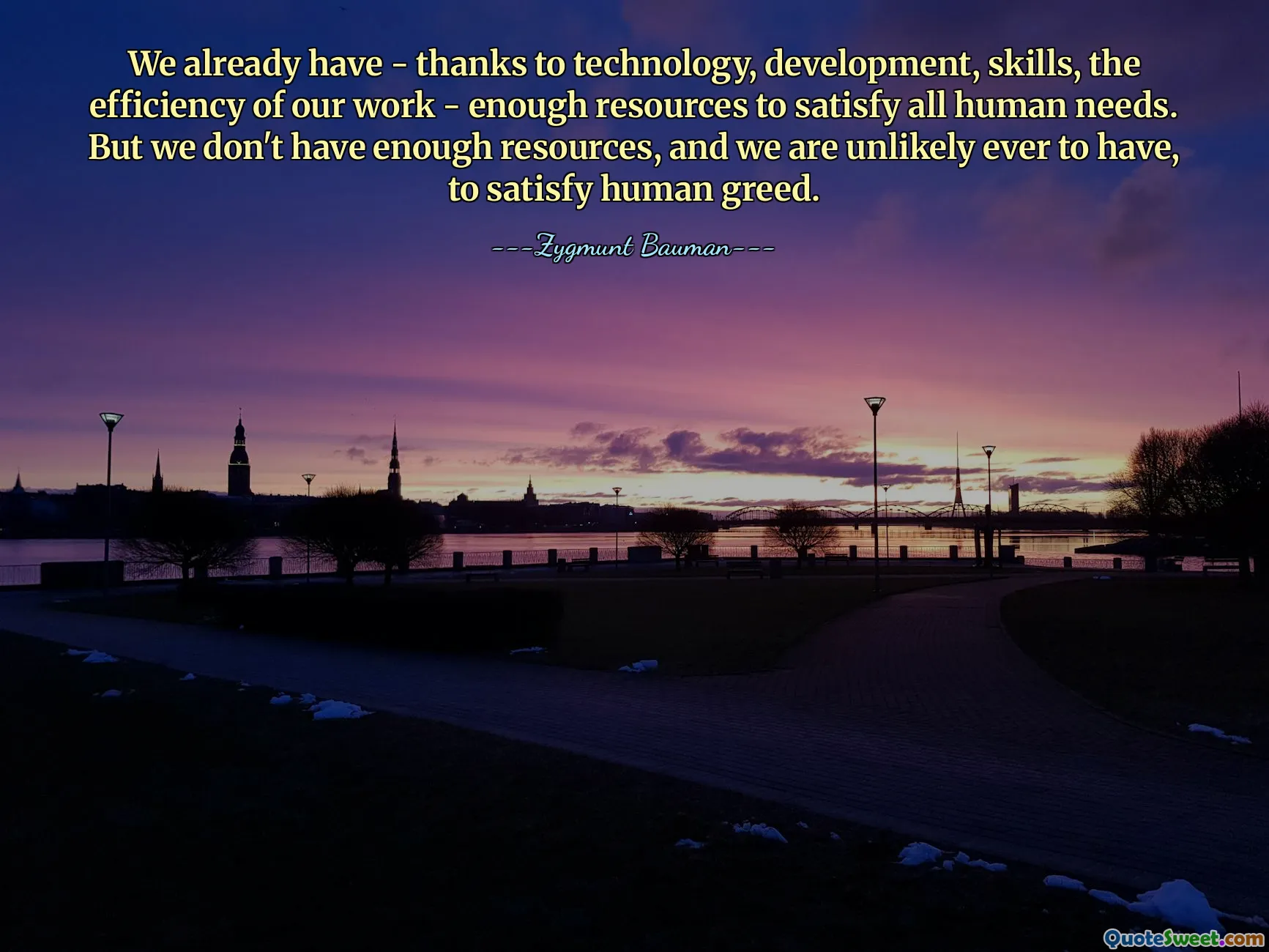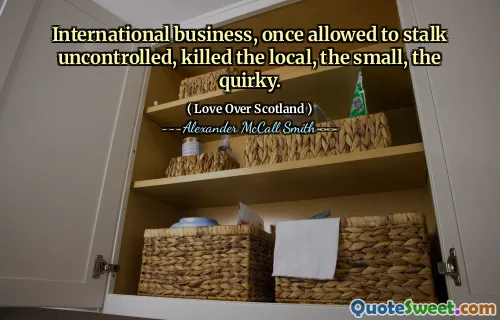
We already have - thanks to technology, development, skills, the efficiency of our work - enough resources to satisfy all human needs. But we don't have enough resources, and we are unlikely ever to have, to satisfy human greed.
This quote draws attention to the paradox at the heart of human progress and consumption. It highlights that technological advancements, improved skills, and increased efficiency have endowed humanity with sufficient resources to meet its basic needs. In an ideal world, such progress would lead to equitable distribution, ending poverty and hunger. However, the stark reality is that the abundance produced often fuels greed rather than well-being. This insatiable desire for more — whether material possessions, status, or power — creates a cycle where resources are continually diverted to satisfy temporary or superficial cravings, rather than addressing fundamental human needs. The notion conflicts with the principles of sustainable development and raises critical questions about societal priorities. It urges us to reflect on whether our economic systems and cultural values promote equitable growth or perpetuate greed-driven consumption. The quote also invites us to consider the role of technology, not just as a tool for increasing efficiency but as a catalyst for potentially equitable or exploitative outcomes depending on its application. It serves as a sobering reminder that progress is often double-edged; it can either alleviate suffering or deepen inequality. Ultimately, it challenges individuals, communities, and policymakers to rethink how resources are allocated and to focus on fostering values that curb greed and promote genuine human fulfillment, sustainable development, and social equity.







